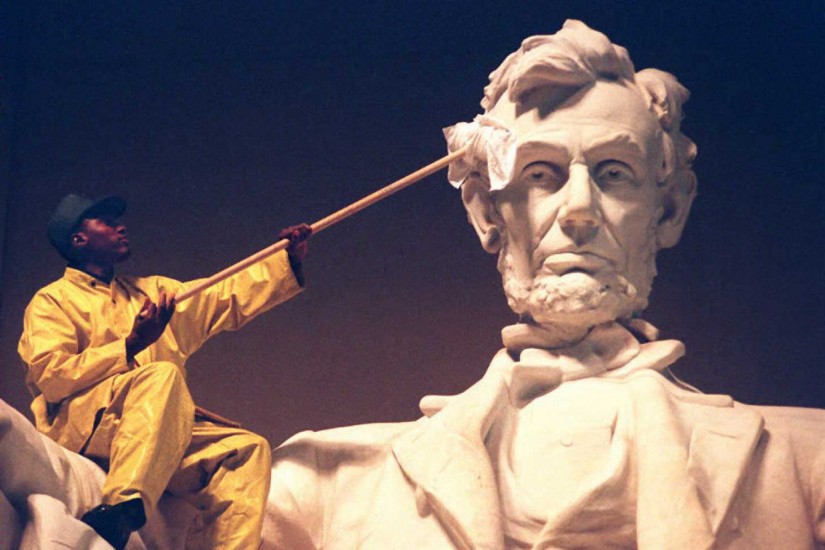Though Lincoln is remembered as the Great Emancipator, it is easy to forget that he won the presidency on a platform that not only opposed immediate emancipation, but also endorsed white supremacy. In deference to slaveholders, he pledged to uphold the Fugitive Slave Law of 1850, which forced the federal government to help slaveholders retrieve escaped slaves. He even promised anxious white northerners that he would oppose giving free blacks equal rights: “I am not nor ever have been,” he said in his 1858 speech, “in favor of making voters or jurors of negroes, nor qualifying them for office, nor to intermarry with white people.” Recovering Lincoln’s racial politics, as well as his “excruciatingly slow” embrace of immediate emancipation—the abolitionist agenda he spent a life-time avoiding—is the central aim of Fred Kaplan’s Lincoln and the Abolitionists: John Quincy Adams, Slavery, and the Civil War. Kaplan, an accomplished biographer of Lincoln and John Quincy Adams, covers well-worn territory. But he argues that it is particularly relevant now because of the deep racial prejudices that divide us still.
“We do ourselves a disservice when we self-servingly massage the record,” Kaplan writes. Lincoln did not solve the nation’s race problem: “He left us with it.” That Lincoln’s most remarkable achievement, the emancipation of four million enslaved Americans, was made possible only by circumstances beyond his control, and entailed an accommodation of the nation’s racism, is not meant as an attack on Lincoln. Rather, Kaplan argues, if we “see Lincoln plain” we are able to see our present more clearly too.
Kaplan has a vital argument to make but has chosen an odd way to make it. Rather than pit Lincoln against the antislavery activists who pressured him to slowly change his views, he makes John Quincy Adams into Lincoln’s chief abolitionist foil. To be an abolitionist meant, at base, to demand the immediate end of slavery, regardless of its constitutional protections, and to fight for free black equality; by contrast, many northerners simply held antislavery views—meaning that they were morally opposed to slavery, but were willing to tolerate the South’s right to maintain slavery within its borders, and would try only to limit its expansion westward. They were also ambivalent about, if not downright opposed to, free black equality.
